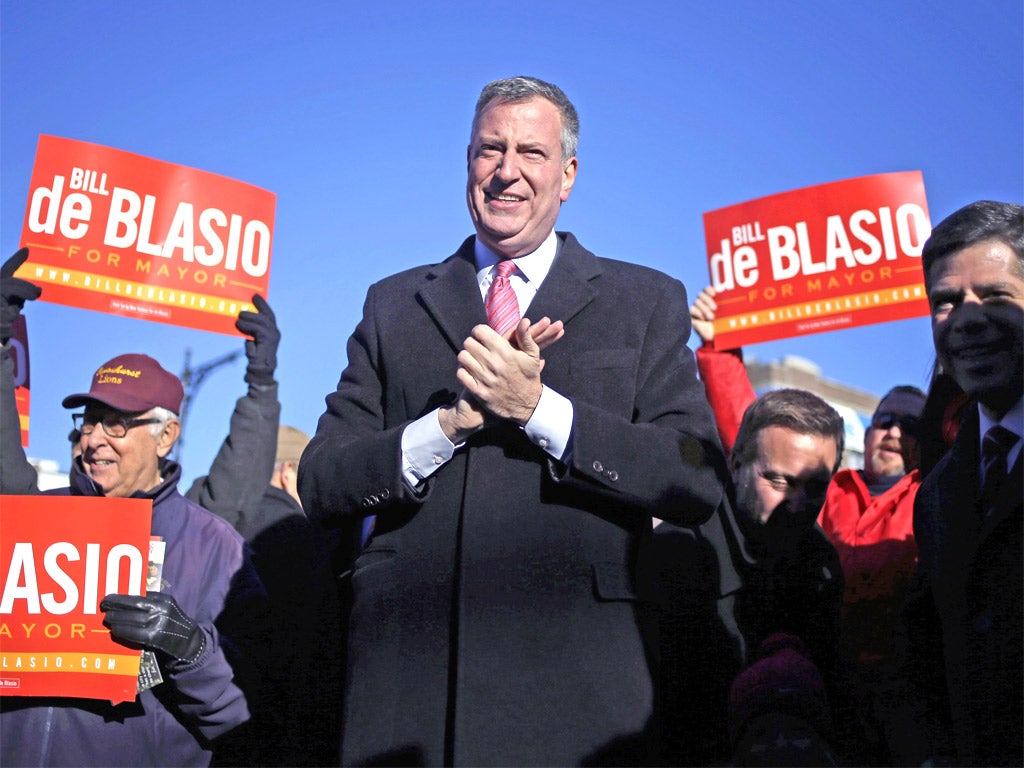Usborne in the USA: Raising the minimum wage is the easiest way to help workers
Tea Party purists equate the minimum wage with outright socialism

Your support helps us to tell the story
From reproductive rights to climate change to Big Tech, The Independent is on the ground when the story is developing. Whether it's investigating the financials of Elon Musk's pro-Trump PAC or producing our latest documentary, 'The A Word', which shines a light on the American women fighting for reproductive rights, we know how important it is to parse out the facts from the messaging.
At such a critical moment in US history, we need reporters on the ground. Your donation allows us to keep sending journalists to speak to both sides of the story.
The Independent is trusted by Americans across the entire political spectrum. And unlike many other quality news outlets, we choose not to lock Americans out of our reporting and analysis with paywalls. We believe quality journalism should be available to everyone, paid for by those who can afford it.
Your support makes all the difference.For a glimpse of New York’s glittering wealth you might have loitered at last night’s Christmas tree lighting at Rockefeller Plaza after perusing the parade of luxury windows on Fifth Avenue. As for its poverty, the waiting area at the nearby Port Authority bus terminal would have been a good place to start.
This is the “tale of two cities” that Democrat Bill de Blasio talked about when he cruised to victory in last month’s mayoral race. Yet as a political mantra, it might just as easily be applied to the country as a whole.
America’s tale of two lands is coming into helpful focus at the moment in part because for so many of its citizens, the approaching festive season is sure to be anything but. With an unemployment rate still above 7 per cent, millions don’t have jobs while Republicans in Washington are slashing safety-net benefits like food stamps. Meanwhile, about 30 million are trying to survive on the puny federal minimum wage.
Of all the tools available to politicians to lift the poor, adjusting the federal minimum wage is the closest to hand. Since 2009 it has been stuck at $7.25 (£4.40) an hour. There was a time when it equalled just about half what the average American worker earned. Years of erosion of its inflation-adjusted value means that today it is only about a third. Things are even worse if you consider how the American economic model has changed.
Quaintly, some still see the minimum wage as protecting secondary earners in the family – the unskilled burger-flipping teens – from exploitation while someone else in a better job on better money keeps the household afloat. But all-too-often nowadays it’s dad behind the cash register at McDonald’s trying to sustain his brood on the minimum wage, which comes to less than $15,000 a year, below the poverty level for a family of four. He may also be educated to the hilt and skilled for a profession that has withered.
The indignities that this new economy inflicts are beginning to strain a lot of people’s patience. McDonald’s drew fire recently when its website encouraged employees to sell unwanted household items on eBay as a way to make ends meet. Wal-Mart was creamed in the press after workers at a branch in Ohio held a food drive last month so some of their colleagues could eat.
The loudest protest will come today when fast-food workers in 100 cities across the country are due to down spatulas and walk off the job to demand the minimum wage be raised. It will be the culmination of a campaign, supported by the unions, which began with a smaller-scale strike action by fast-food workers late last year in New York and spawned similar walkouts in 60 cities during the summer.
Also on the move will be a contingent from SeaTac, a town in Washington state, which last month voted, if only by a margin of 77 out of more than 6,000 ballots cast, to increase the minimum wage for all workers within its boundaries to $15 an hour. They will march for seven hours from SeaTac to downtown Seattle in solidarity with those around the country who so far haven’t been so lucky.
Because there are several states, counties and towns that have adopted a minimum wage more generous than the federal one, economists have been able to test the argument that the higher you set it, the fewer the people who will actually be given jobs. Mostly they conclude that this is a myth. A 16-year study due this month in The Review of Economics and Statistics will assert that employment opportunities in areas with higher minimum wage levels have proved to be no narrower than in areas where businesses were able to pay less.
In February, Barack Obama urged Congress to set a new level of $9 an hour. Harry Reid, the Senate Majority Leader, later promised to move legislation this year for a more generous $10 floor. It is surely a good idea if closing America’s shocking income gap is something you aspire to. A large majority of Americans would support it too, including 57 per cent of Republicans, according to one recent poll.
But good ideas have a way of dying when they reach the House, where the majority Republicans prefer to listen to business owners who like their wage packets slim and to Tea Party purists who equate the minimum wage with government engineering if not outright socialism. Thus, Reid is likely to be stymied.
Wouldn’t it be nice to dream that the Party of No will become of the Party of Yes on this one issue in time for Christmas? But that, I’m beginning to think, would require believing in Santa.
Join our commenting forum
Join thought-provoking conversations, follow other Independent readers and see their replies
Comments